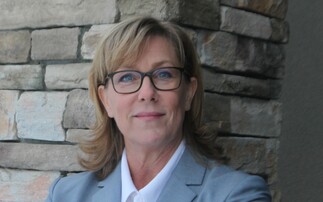It is a legal requirement for trustees to have the right level of technical knowledge to do their job efficiently. Andrew Short discusses how trustees can meet and surpass this requirement.
"The roots of education are bitter, but the fruit is sweet."
Aristotle was probably thinking about how difficult philosophy was to grasp when he said this, but for many lay trustees a Greek textbook may as well be thrown in front of them when they first start out.
It must be a bitter (and steep) learning curve for trustees who also have day jobs. Trustees have to meet a legal requirement to have the right levels of trustee knowledge and understanding within six months of being appointed they need to be able to pick up subjects that are very technical.
Lay trustees must feel an immense sense of achievement when all that hard work pays off and they can competently converse about pensions without feeling swamped in jargon.
But is enough being done to get them to this point?
For trustees to get this confidence they must be able to assimilate facts and knowledge and be able to apply it to their own situation to make informed decisions.
The first step for many new trustees is to sign up to The Pensions Regulator’s trustee toolkit. The industry consensus is that the regulator has set down the minimum benchmark for what every trustee should learn.
Independent trustee Mike Boag feels: “the regulator has done a good job in putting together the trustee toolkit,” though he does concede it must have been “difficult to gauge the level at which to pitch it.”
This last point is very important: what level of understanding do you assume the new trustee has? Training material needs to navigate the middle way between being overly simplistic or complex.
A further point is that the toolkit only forms the basic level of knowledge trustees need and more training will be needed for the trustee to really get up to speed.
The Pensions Regulator trustee propositions manager Susannah Hines agrees this is the case and that the online course should not be seen in a vacuum:
“The trustee toolkit is the regulator’s online learning product but we don’t see that as the only form of training that a trustee would want to go through,” she says.
“It’s very much a starting point and it gives them a good grounding in their role as trustees but often this can be supplemented by face-to-face training offered by other advisers or other pension training companies.”
Other training opportunities
There are many training providers who offer trustee education.
The Pensions Management Institute (PMI) offers an award in pension trusteeship based around the Regulator’s online toolkit.
Tim Middleton believes the qualification is “very good for giving new trustees grounding in the technical issues they have to get to grips with.
Passing an exam gives people the confidence to realise that they can demonstrate publically they’ve got the technical skills required to do the job.
” Pension scheme advisers and many consultancy firms also offer additional training for trustees. These courses are typically taught around specific areas, such as liability-driven investment or de-risking''.
However, many training professionals are wary about relying too much on these courses.
They feel the education provided can be one dimensional, giving trustees a narrow-minded view of reality.
Pitmans Trustees Limited head of business development and training Andy Agathangelou agrees this can cause problems:
“It is vital that trustee boards access training from a range of sources,” he says.
“It can be very unhealthy, for example, for all training to be provided from just the incumbent advisory firm looking after the scheme because an overly-simplistic, myopic understanding of the issues will develop. Furthermore, it is not always easy to distinguish between unbiased generic training and what might just be a disguised pitch driven by the commercial agenda of the advisory firm itself. A range of inputs creates a more realistic and, therefore, a more useful understanding.”
The way to negate the effects of this blinkered view in Agathangelou’s opinion is to create a training framework to identify the educational needs of trustees.
“Trustee boards ought to be conducting a training needs analysis to identify the individual-specific weak points in knowledge and understanding, in the context of the scheme’s strategic objectives.
“There are typically three challenges to be overcome here: firstly, many schemes are not clear on their strategic objectives to begin with, so they struggle to have any real clarity on where competence and readiness needs to be improved.
Secondly, they do not know how to assess competence because they have not been shown how to use, for example, a situational leadership model that would help to pin-point what needs attention.
Thirdly, no real consideration is given to what would be the most appropriate learning style to use.
“The net result is a great deal of wasted time and effort. As an industry we are way behind where we ought to be in terms of training effectiveness and efficiency and that’s a shame.”
The importance of networking
Others in the industry feel it is more difficult to quantify what knowledge trustees require.
Trustee and Pension Management Association chief executive Wayne Phelan believes it is impossible to teach and test all the skills trustees require.
“You can know all the facts but if you don’t know how to assimilate them and make decisions off the back of them you’re maybe not that helpful. Part of it is being an executive: making decisions and questioning your advisers, which does not tend to lend itself very well to examination.”
It would seem the only real way to get a critical view of what is happening in the industry is to talk to other trustees and learn from their experiences.
Baker Tilly pensions audit partner Gary Grewal recognises what the power of having relationships with other trustees can bring and attending seminars and events.
“Trustees should be open to exploring new ideas about what other similar-sized schemes are doing. It could be incumbent on their advisers to bring these different options to trustees, but it’s really more about trustees getting a broader training programme in place.
He continues: “There are some very good trustee seminars out there that help trustees network with other trustees. The chance to speak with other trustees is important for the learning process. There is no substitute for trustees sharing ideas. It works with forums and networks set up for chairman of pension funds. Chairmen who have been through similar experiences to what another schemes might be going through are generally happy to share experience and ideas. The advantages of being part of a trustee network are, in my view, invaluable.”
Mike Boag agrees with this point and talks about his own experiences of using the support from a network of contacts with PensionChair a group set up for trustee chairman:
“You bounce ideas off each other. An awful lot of the problems trustees have or the challenges are common to other pension funds. It makes sense to bounce ideas off each other, perhaps something has been done or a course of action taken and the group can learn from it. It’s very often you come away from a meeting and say ‘that was a good point I remember so and so saying that and it makes sense.’”
The most important thing for these events is to let the discussions take an organic and relaxed approach.
Boag feels the confidentiality of meetings is imperative to their success as the trustees feel able to express themselves more openly:
“The meeting is under Chatham House rules and this is a vital part of common interest forums people are much more relaxed if they know it’s under these rules.”
There are inroads being made to create such platforms where trustees can meet each other. Alongside the training courses they run, the PMI has the trustee group, which runs a number of seminars over the year.
Middleton feels “the trustee group is a very useful body for trustees to join and gives them a very clear idea of how to address the more pressing issues that affect pension schemes. It gives them an opportunity to network with other trustees and compare notes.”
The opportunities to meet other trustees should be mixed with the other training methods on offer for example the classroom training and the regulator’s toolkit but interaction with peers is also an important piece of trustee education.
Not only to discuss ideas and what is happening within the industry but to talk with other trustees about questions they should be asking their consultants.
This enables trustees to constructively challenge their advisers and get the best advice for the running of the scheme.







